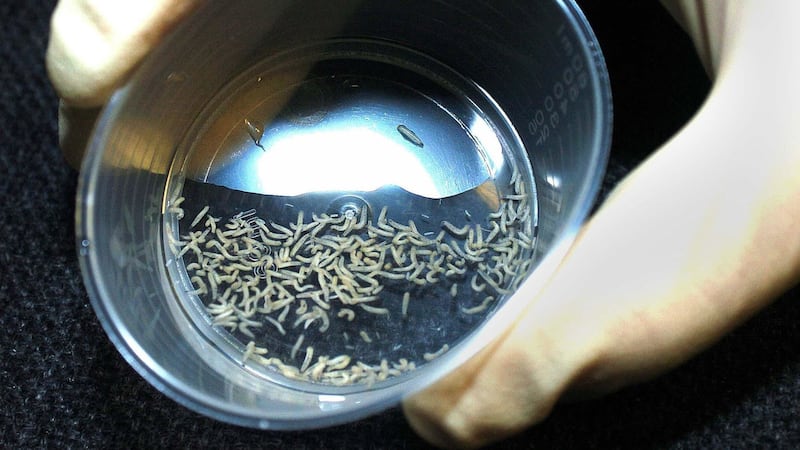Foods such as mealworms, algae and protein derived from fungi will need to be mass-produced and consumed to combat global malnutrition in the future, a new report suggests.
Researchers have said that, with climate change, environmental disasters and epidemics posing a threat to current food supply chains, new systems are needed to “future-proof” meals.
In a report published in the journal Nature Food, scientists from the University of Cambridge said that farming foods such as algae, which include spirulina and sugar kelp, the larvae of insects such as the house fly, and mycoprotein, which is protein derived from fungi, could help eradicate global malnutrition.
These foods are seen as sustainable alternatives to traditional plant and animal-based foods and can be grown at scale.
The researchers said that using foods like insects and algae as ingredients in the form of pasta, burgers and energy bars, rather than eating them whole, could help overcome consumers’ reservations.
Dr Asaf Tzachor, from the Centre for the Study of Existential Risk (CSER) at the University of Cambridge and first author of the report, said: “Foods like sugar kelp, flies, mealworm and single-celled algae, such as chlorella, have the potential to provide healthy, risk-resilient diets that can address malnutrition around the world.”
He added: “Our current food system is vulnerable. It’s exposed to a litany of risks – floods and frosts, droughts and dry spells, pathogens and parasites – which marginal improvements in productivity won’t change.
“To future-proof our food supply we need to integrate completely new ways of farming into the current system.”
The team analysed close to 500 published scientific papers looking at different types of future food production systems.
They believe production of so-called “future foods” such as insects and algae could change the way food systems operate as they can be grown at scale in compact systems suitable for urban settings as well as remote islands.
The researchers said it would be “dangerous” to rely on food that comes through conventional farming and supply systems as these are at risk of serious disruption from factors such as pests, environmental disasters, and even pandemics.
They said the Covid-19 pandemic has highlighted this vulnerability as government-imposed restrictions disrupted food production and supply chains worldwide.
Recent examples of challenges to food systems include wildfires and droughts in North America, outbreaks of African swine fever affecting pigs in Asia and Europe, and swarms of desert locusts in East Africa, the researchers said.
Climate change is anticipated to worsen these threats, they added.
Catherine Richards, a doctoral researcher at Cambridge’s Centre for the Study of Existential Risk and Department of Engineering, said: “Advances in technology open up many possibilities for alternative food supply systems that are more risk-resilient, and can efficiently supply sustainable nutrition to billions of people.”
She added: “The coronavirus pandemic is just one example of increasing threats to our globalised food system.
“Diversifying our diet with these future foods will be important in achieving food security for all.”








